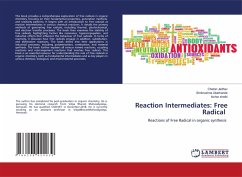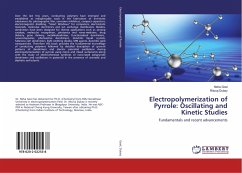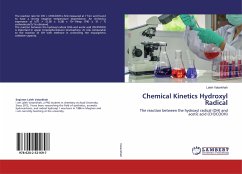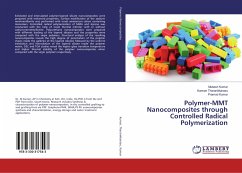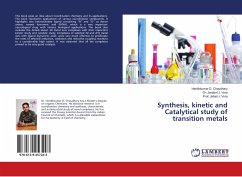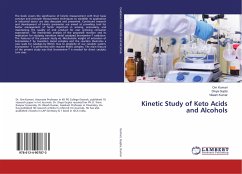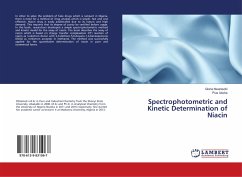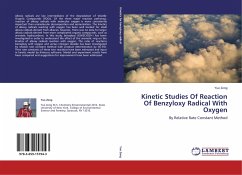
Kinetic Studies Of Reaction Of Benzyloxy Radical With Oxygen
By Relative Rate Constant Method
Versandkostenfrei!
Versandfertig in 6-10 Tagen
32,99 €
inkl. MwSt.

PAYBACK Punkte
16 °P sammeln!
Alkoxy radicals are key intermediates of the degradation of Volatile Organic Compounds (VOCs). Of the three major reaction pathways, reaction of alkoxy radicals with molecular oxygen is more consistently important than unimolecular decomposition and isomerization. The kinetics of alkoxy radicals reacting with oxygen has been well studied for small alkoxy radicals derived from alkanes; however, there was no data for larger alkoxy radicals derived from more complicated organic compounds, such as aromatic hydrocarbons. In this study, benzyloxy (C6H5CH2O ) has been investigated in order to underst...
Alkoxy radicals are key intermediates of the degradation of Volatile Organic Compounds (VOCs). Of the three major reaction pathways, reaction of alkoxy radicals with molecular oxygen is more consistently important than unimolecular decomposition and isomerization. The kinetics of alkoxy radicals reacting with oxygen has been well studied for small alkoxy radicals derived from alkanes; however, there was no data for larger alkoxy radicals derived from more complicated organic compounds, such as aromatic hydrocarbons. In this study, benzyloxy (C6H5CH2O ) has been investigated in order to understand the effect of the aromatic ring on the kinetics of alkoxy radicals reaction with oxygen. The ratio of reactions benzyloxy with oxygen and versus nitrogen dioxide has been investigated by relative rate constant method with product determination by GC-FID. Then rate constants of these two reactions have been estimated and input in kinetic model by Kintecus software. Model and experiment results have been compared and suggestions for improvement have been addressed.



